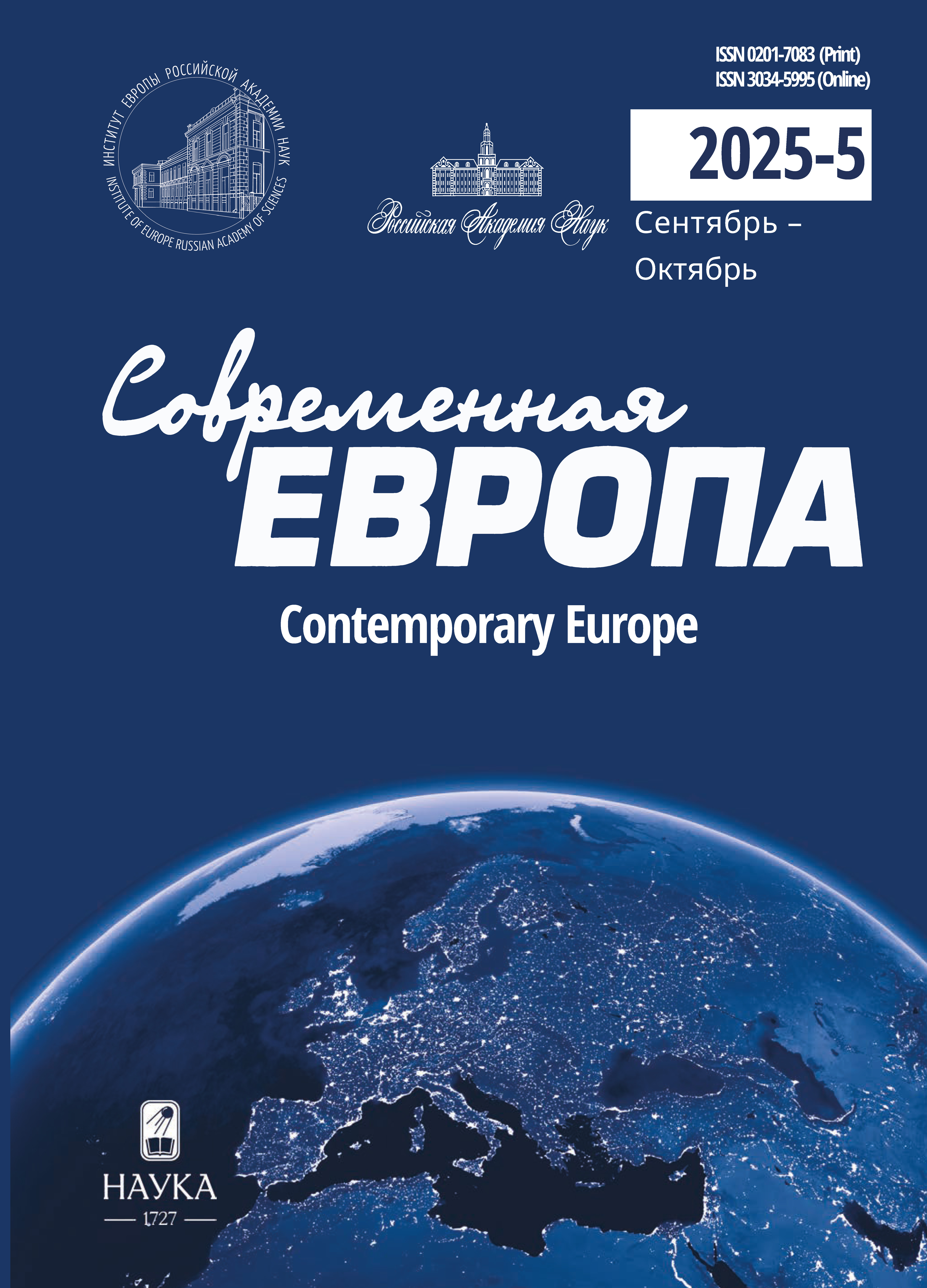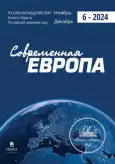ЗАЩИТА БОЛГАРИЕЙ «ИСТОРИЧЕСКИХ ОБЩНОСТЕЙ» В КОНТЕКСТЕ РАСШИРЕНИЯ ЕС
- Авторы: ПОЛЫВЯННЫЙ Д.И1
-
Учреждения:
- Ивановский государственный университет
- Выпуск: № 6 (127) (2024)
- Страницы: 20-31
- Раздел: ЕВРОПЕЙСКИЙ ПРОЦЕСС: СТРАНЫ И РЕГИОНЫ
- URL: https://gynecology.orscience.ru/0201-7083/article/view/652293
- DOI: https://doi.org/10.31857/S0201708324060020
- ID: 652293
Цитировать
Полный текст
Аннотация
В статье проанализирована внешнеполитическая деятельность Болгарии на западнобалканском направлении в контексте дальнейшего расширения ЕС. Цель исследования оценка стратегии и тактики Софии по защите болгарских общностей в Албании, Косово, Сербии и Северной Македонии на фоне внутренней ситуации в стране. Особое внимание уделено институту президентской власти, обеспечивающему преемственность внешней политики в условиях кризиса партийной и парламентской систем. Утвержденная болгарским правительством в 2014 г. Национальная стратегия по отношению к болгарским гражданам и историческим болгарским общностям в мире не получила дальнейшего развития. Болгария в двусторонних отношениях c Албанией, Косово и Сербией настаивает на конституционных гарантиях статуса и прав болгарских исторических общностей. Внесение болгар в перечень национальных меньшинств в законодательстве Албании служит прецедентом в переговорах с двумя другими странами. В отношениях с Республикой Северная Македония (РСМ) София выдвигает на первый план соблюдение принципа добрососедства, закрепленного в Договоре о дружбе, добрососедстве и сотрудничестве от 1 августа 2017 г., и включает в повестку наряду с конституционным признанием болгарского меньшинства вопросы истории и языка титульного населения РСМ. Действия Болгарии, основанные на стратегической оценке перспектив соседних государств, обосновываются правовыми нормами ЕС и Совета Европы и находят поддержку в обществе на фоне жесткого внутриполитического кризиса.
Ключевые слова
Об авторах
Д. И ПОЛЫВЯННЫЙ
Ивановский государственный университет
Email: dipol53@mail.ru
Доктор исторических наук, профессор, Зав. научно-образовательным центром интеграции науки и образования Иваново, Россия
Список литературы
- Българска академия на науките (2008) За официалния език на Република Северна Македония. Академично издателство «Марин Дринов», София, България. 63 с.
- Иванов Л. (2008) Българската политика спрямо Република Македония. Фондация «Манфред Вьорнер», София, България. 79 с.
- Кайчев Н. (2023) България и развитието на Република (Северна) Македония след 1990 г. България и Македония: история и политика. Ч. 2. По нов път. Тангра ИК, София, България. С. 501-538.
- Кандель П.Е. (2024) О «постполитике» в эпоху «постнауки». Новые тенденции в электоральных процессах в странах Юго-Восточной Европы. ИЕ РАН, Москва. 150 с.
- Подчасов Н.А. (2023) Политические «горки» в Болгарии: электорат «статус-кво» vs электорат «перемен». Научно-аналитический вестник ИЕ РАН. № 4. С. 33-41.
- Смирнов П.А. (2021) Болгарский вектор внешней политики Северной Македонии: проблема идентичности. Евразийская интеграция: экономика, право, политика. № 1. С. 86-96. doi: 10.22394/2073-2929-2021-02-86-96.
- Тодорова К. (2020). Правителството на Филип Димитров и признаването на Република Македония (8.XI.1991-30.XII.1992). Анамнеза. No. 4. P. 92-124. URL: http://www.anamnesis.info/node/1681 (дата обращения: 18.09.2024).
- Brunnbauer U. (2022) Side Effects of “Phantom Pains”: How Bulgarian Historical Mythology Derails North Macedonia’s EU Accession. Comparative Southeast European Studies. No. 70(4). P. 722-739.
- Fouéré Е. (2023). EU Enlargement and the Resolution of Bilateral Disputes in the Western Balkans. Open Society Foundations. European Policies Center. 17 p. URL: https://cdn.ceps.eu/wp-content/uploads/2023/07/EU-enlargement-and-the-resolution-of-bilateral-disputes-in-the-Western-Balkans.pdf (дата обращения: 18.09.2024).
- Kaytchev N. (2023) Perspectives for North Macedonia’s EU Integration after the French EU Framework Solution in 2022. Foreign Policy Review. No. 1. P. 146-159. doi: 10.47706/KKIFPR.2023.1.146-159.
Дополнительные файлы








